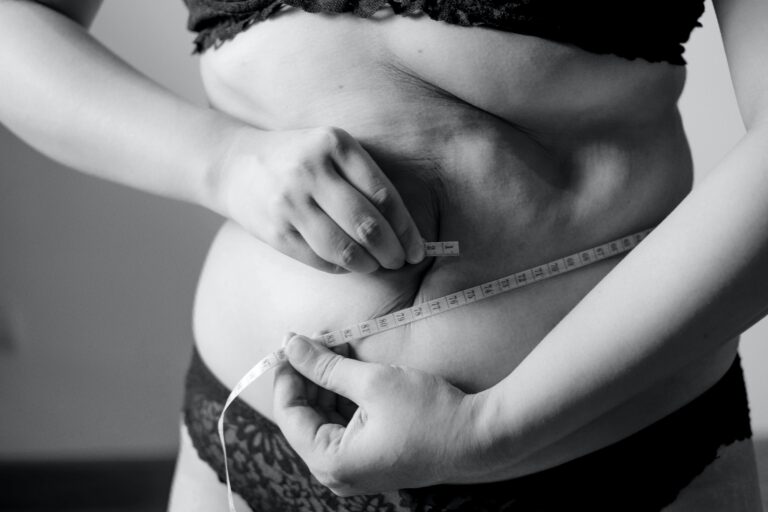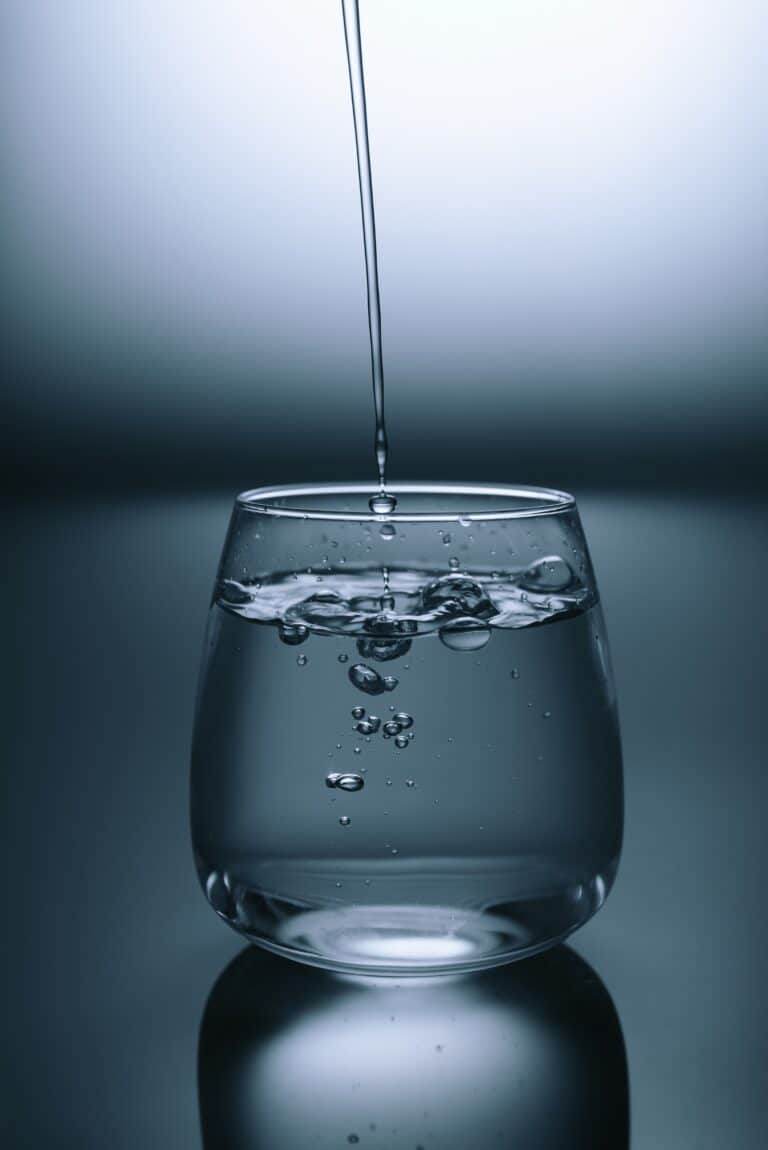You have just lost a significant amount of weight. Congratulations! But now you have a new problem. The loosened skin. What can you do about that?
Loosened skin after weight loss can put a damper on your fitness goals. But there are ways to deal with it. This article will review the best solutions.
Why Does Your Skin Become Loose After Weight Loss?
When you gain weight, your skin expands to allot for the increased growth. During pregnancy, skin expands, but it will typically snap back after the nine-month gestation period. But if you’ve been overweight for a significant amount of time, collagen and elastin fibers will become damaged and the skin will not be able to retract.
As a result, the skin will hang loose from the body. Generally, the greater the weight gain and the longer the person has been obese, the more loose skin they will have.
What To Do About Loose Skin
There are a few remedies that will help the skin tighten up. They include:
Resistance Training
Resistance training, or weight training, will help to increase muscle mass that can improve the appearance of loose skin.
Collagen Supplements
Taking a collagen hydrolysate supplement may make up for the damage caused by obesity. Studies have shown that taking a collagen supplement for 12 weeks can increase skin elasticity, texture, and hydration. It is especially effective when taken alongside vitamin C and E, zinc, and biotin.
Protein
Certain types of protein, such as the amino acids lysine, and proline play, can aid with collagen production.
Vitamin C
Vitamin C plays a key role in collagen synthesis.
Omega-3 Fatty Acids
The omega-3s found in fatty fish can increase skin’s elasticity.
Water
Staying hydrated can have a positive effect on skin’s appearance.
Firming Creams
Firming creams that contain collagen and elastin may be somewhat beneficial in tightening skin, but it’s best that the processes occur from the inside out.
Body Contouring
Body contouring involves making an incision to remove excess fat and skin. Typically, multiple surgeries are performed to complete the process. The procedure can be done on several parts of the body as follows:
• Abdominoplasty: Also called a tummy tuck, abdominoplasty removes excess skin from the abdomen.
• Lower Body Lift: This is performed to remove skin from the belly, hips, buttocks, and thighs.
• Upper Body Lift: This procedure addresses the breasts and back area.
• Medial Thigh Lift: This is used to remove skin from the inner and outer thighs.
• Brachioplasty: Also called an arm lift, this involves removing the skin from the upper arm.
Radiofrequency Treatment
This alternative treatment uses infrared light, radiofrequency, and massage to reduce loose skin.
Ultrasound
An ultrasound will not remove loose skin, but it may reduce pain and discomfort associated with loose skin.
The loose skin associated with weight loss can be the one downside of reaching your fitness goals. The methods in this article can help remove it so you look and feel your best. We wish you luck in attaining the body you’ve always dreamed of.
In today’s fast paced world, many of us eat quickly shoveling down food so we can get on to the next task. Not only is this bad for digestion, but it can also lead to weight gain. Studies show that fast eaters are 115% more likely to be obese than slow eaters.
This article will look at the science of how fast eating can contribute to weight gain and how you can slow down your eating habits to keep weight under control.
Why Does Eating Quickly Lead to Weight Gain?
After you eat, your body releases a hormone called ghrelin. Ghrelin tells your brain that you are full, so you stop eating.
However, it takes about 20 minutes for the process to complete itself. So, if you eat too quickly, you don’t give ghrelin enough time to communicate feelings of fullness to the brain and you keep on eating.
One study showed 4,000 middle aged adults who said they ate very fast to have weight issues which began when they were around 20.
Another study showed men who were fast eaters gained twice as much weight over a period of time as compared to those who claimed to be slow or medium paced eaters.
The Benefits of Eating Slowly and Weight Gain
When you eat slowly your brain has enough time to tell your body you are full, so you eat less.
One study looked at a group who ate 10.5 ounces of ice cream on two separate occasions. The first time they took five minutes eating the ice cream. The second time they took 30 minutes eating the ice cream.
They reported feeling increased levels of fullness when they ate the ice cream slowly.
How Do You Eat Slowly?
If you are used to eating fast, you may not know what’s required to eat slowly. According to experts, it’s all in the chewing.
So exactly how slowly should you be chewing? There really is no set standard. However, one study found that chewing each bite for thirty seconds reduced snacking throughout the day.
You can also slow down your eating with the following habits:
• Avoid eating when you are very hungry.
• Set your utensils down between bites so you can chew more slowly.
• Eat foods that require a lot of chewing such as those that are high in fiber.
• Drink water with your meals to promote feelings of fullness.
• Before you start eating, set a timer for 20 minutes. Aim not to be done with your meal until the timer goes off.
• Avoid watching TV or using electronic devices while eating. They will cause you to lose focus on your chewing.
• If you find you are eating too quickly, take deep breaths and refocus.
• Note that it will take time to get used to your new eating habits. Be patient as you adapt.
If you are looking to lose weight, eating slowly could be the key. Now that you know the steps to take, you can start adapting in your everyday life. We wish you luck reaching your fitness goals.
Many of us will do just about anything to lose weight. Could drinking ice cold water be the solution? This article will look at how drinking cold water can help you reach your weight loss goals.
Does Drinking Water Help You Lose Weight?
Let’s start by looking at the benefits of drinking water for weight loss. Here we’re talking about any temperature water. Hot, lukewarm, or cold.
Drinking water helps shed those pounds because:
- It is a good replacement for sugary, caloric drinks.
- It suppresses appetite so you will be less likely to snack between meals. It will also help you eat less at one sitting if you drink water directly before a meal.
- It helps remove waste from the body which reduces weight gain from bloating.
- It helps burn fat. The first step in the process of metabolizing fat is hydrolysis which occurs when water molecules interact with fats to create glycerol and fatty acids. Therefore, water helps burn fat from foods as well as stored fats.
- Water makes workouts more effective. It aids with the movement of joints, muscles, and connective tissue. It also helps the functioning of major organs during physical activity.
- Water aids with calorie burn. Studies show that people burn 2% to 3% more calories than usual 90 minutes after drinking water.
Does Drinking Ice Cold Water Help You Lose Weight?
So we’ve established that water can be an effective weight loss aid. But what if that water is iced up? Can it do even more to assist with calorie burn?
The answer is yes, ice cold water can help you lose weight. But the effects are minimal.
According to the University of Washington, drinking a cup of ice-cold water will cause you to burn about 8 more calories than you would if you drink a cup of room temperature water. The difference is marginal, but it can really add up if you drink several glasses a day. For example, if you drink 8 glasses of ice-cold water a day, you can burn 80 additional calories.
The additional calorie burn occurs because the coldness of the water causes your body to work to regulate to its normal temperature.
However, drinking water will do little to affect weight gain unless you accompany it with the right diet and exercise routine.
How Much Water Should You Drink a Day?
The amount of water you should drink a day varies depending on biological and environmental factors and other issues. However, experts suggest that women should drink about 11.5 cups of water a day while men should drink about 15.5 cups a day. This can change depending on the outside temperature, conditions you may be dealing with such as dehydration, and how much hydration you are getting from foods like fruits and vegetables.
Drinking water is an effective way to increase weight loss. Adding a few ice cubes can help you shed a few extra pounds. It won’t do much, but it may be worth the effort.
How do you take your water?
It’s important to maintain an effective fitness routine throughout your life, but especially when you hit menopause. Once menopause sets in, you will be dealing with additional health concerns that require a specific workout plan. This article will review the issues menopausal women may be facing and the fitness routines that will keep them healthy.
Menopausal Health Concerns
Once you reach menopause, you will be dealing with health and fitness concerns that were not as much of an issue up to now. These include:
• Weight Gain: Women tend to gain weight during and after menopause, particularly around their stomach area. Obesity may also contribute to an increased occurrence of hot flashes. Exercise will help you maintain a healthy weight as you get older.
• Cancer Risk: After menopause, women’s ovaries stop making estrogen. Their main source of estrogen is fat tissue. As a result, fat tissue in the body increases raising the risk of cancer. Working out lowers fat tissue levels to keep you healthy.
• Bone Density Loss: Bone density loss often occurs after menopause making osteoporosis and fractures a common issue. The proper fitness routine will keep bones strong.
• Reduces Risk of Other Diseases: Women are at a higher risk for other ailments such as heart disease and diabetes after menopause occurs. Exercise promotes weight loss and reduces the risk of these diseases.
• Improves Mood: Older adults tend to experience depression. Physical activity boosts serotonin in the brain to improve mood. It also reduces stress and inflammation which contribute to cognitive decline.
What Exercises are Best for Menopausal Women?
It is recommended that menopausal women engage in the following workout routines to maintain optimal health.
• Aerobics: Aerobic activity such as walking, jogging, biking, and swimming are recommended for weight maintenance. If you are a beginner, start with 10 minutes of aerobics a day and work your way up gradually.
• Strength Training: Strength training reduces body fat and keeps bones and muscles strong. Weight machines, hand-held weights and resistance bands are recommended strength training options. Start out doing 12 repetitions until your muscles get tired. Gradually increase your weight, resistance level, or number of reps to continue challenging your body.
• Stretching: Stretching is a great way to maintain and improve flexibility. It’s best to stretch after a workout when your muscles are already warmed up.
• Stability and Balance: Stability and balance exercises are important as you get older because they reduce the risk of falls. You can improve balance by doing something as simple as standing on one foot. Tai chi, Pilates and yoga can also be effective.
Once you get up to speed, your regular routine should include moderate aerobic activity for at least 150 minutes week or vigorous aerobic activity for at least 75 minutes a week. Strength training should be done at least twice a week.
Menopause comes with its share of health risks. But with the right routine, you can optimize fitness levels and stay healthy and happy. What activities do you like to include in your fitness regimen?




